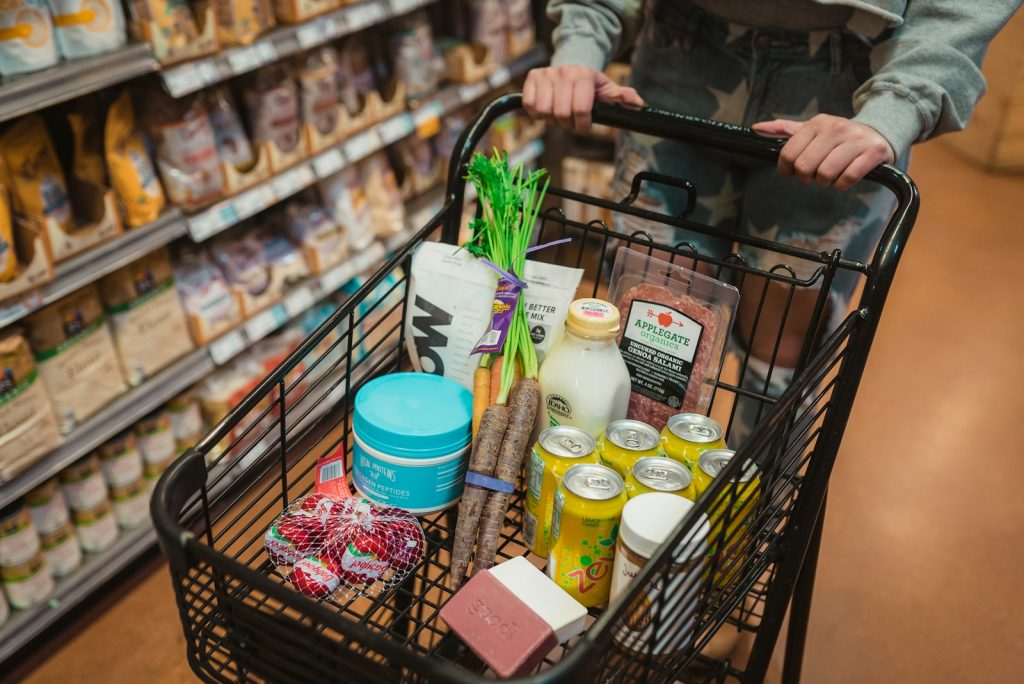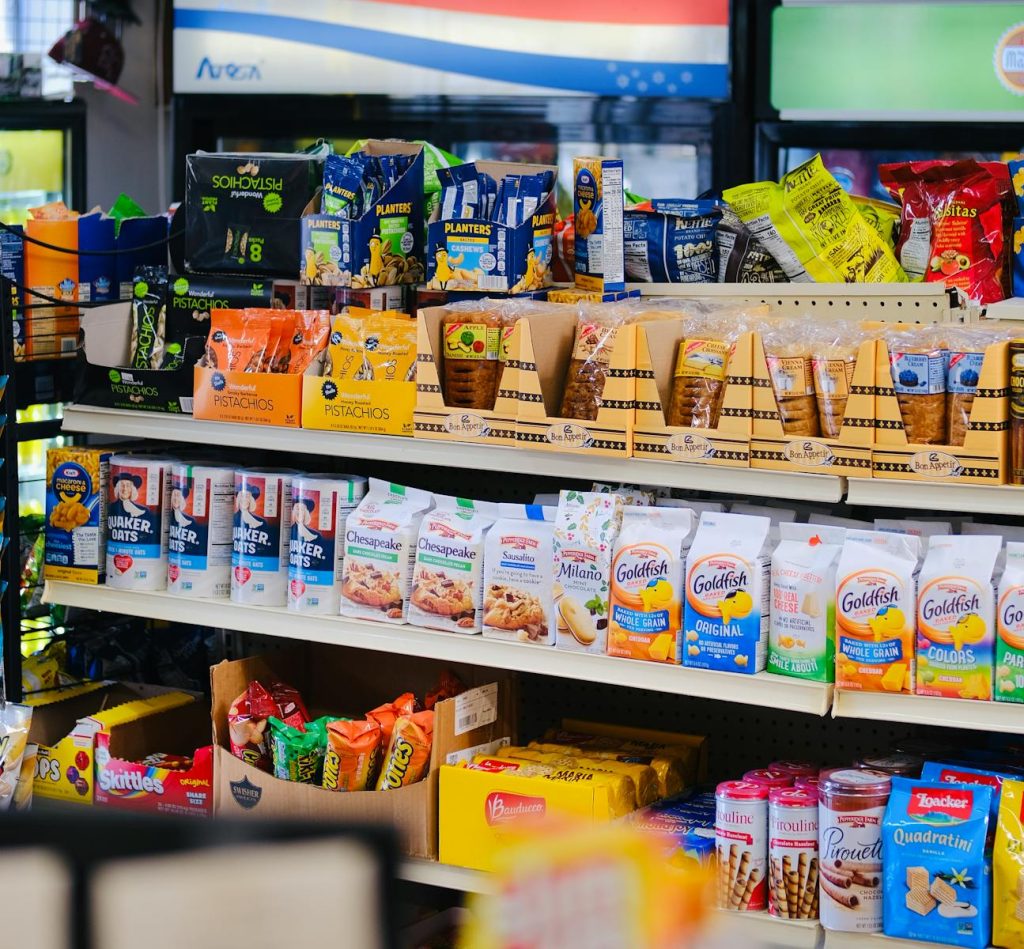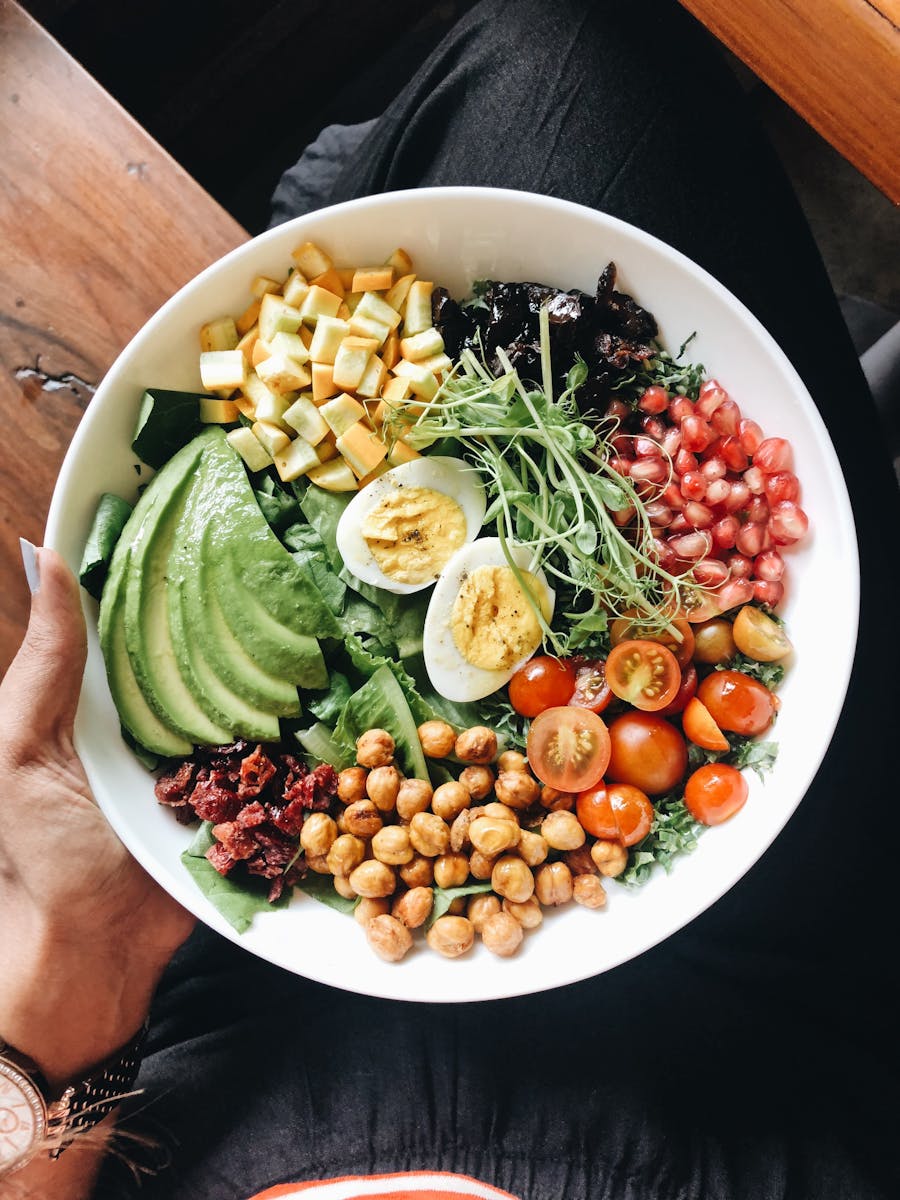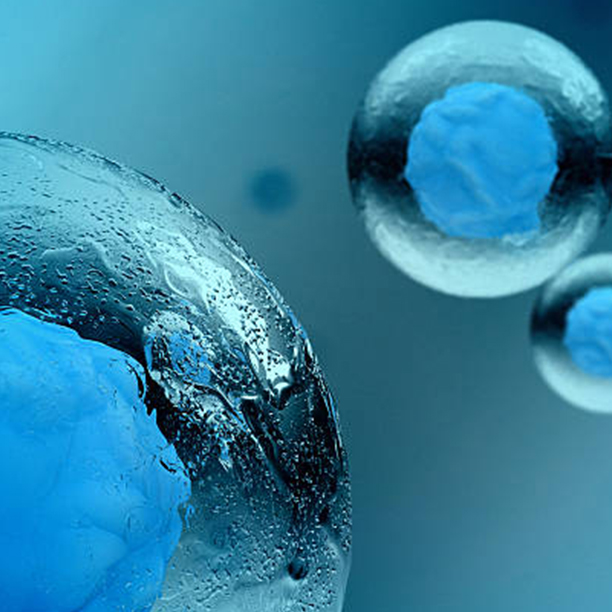Why Nutrition is Essential Before and After Stem Cell Therapy

Stem cell therapy is a groundbreaking medical approach with the potential to repair, replace, and regenerate damaged tissues. While the procedure is advanced, your body’s ability to maximize the benefits of stem cell therapy largely depends on how well it’s prepared to support the healing process. Nutrition plays a central role in this preparation. Both before and after your stem cell infusion, a nutrient-rich, anti-inflammatory diet can help create the optimal conditions for your body to heal and regenerate.
The Importance of Pre-Therapy Nutrition
Before stem cell therapy, the body must be balanced and nourished to give the stem cells the best chance of thriving. A healthy diet provides the essential nutrients that support cellular health, detoxification, and immune function. Inflammation, for example, can inhibit the body’s ability to heal and regenerate, but eating the right foods can help minimize this risk. Incorporating anti-inflammatory ingredients like omega-3 fatty acids (found in fish, walnuts, and flaxseeds) can reduce inflammation, while fruits and vegetables rich in antioxidants help protect cells from oxidative stress.
In addition to controlling inflammation, your body needs to be free from toxins that can interfere with cellular function. Processed foods, sugars, and unhealthy fats can increase toxicity levels, hampering the body’s ability to regenerate effectively. Eating whole, unprocessed foods supports detoxification, ensuring that stem cells function at their best during healing.
The Role of Post-Therapy Nutrition
Nutrition remains equally important post-therapy. After introducing stem cells into the body, they require a supportive environment to promote healing and tissue regeneration. A well-balanced diet rich in vitamins, minerals, and healthy fats will provide the necessary building blocks for cellular repair and immune recovery.
Certain nutrients, such as vitamin C, vitamin D, zinc, and magnesium, are particularly important in the post-therapy phase. These nutrients enhance cellular regeneration, allowing the body to repair tissues faster and more efficiently. Vitamin C, for instance, supports collagen production, which is vital for healing wounds and repairing damaged tissues. Similarly, vitamin D and zinc boost the immune system, protecting the body from infections that could otherwise slow recovery.
Hydration is another critical factor in the post-therapy period. Drinking plenty of water helps flush toxins out of the body and supports the delivery of nutrients to the cells. This ensures that the newly infused stem cells have the best possible conditions for regeneration.
Specific Dietary Recommendations for Stem Cell Therapy
- Anti-Inflammatory Foods: Incorporate foods like leafy greens, berries, turmeric, ginger, and fatty fish. These help reduce inflammation, a key factor slowing down the healing process.
- Protein-Rich Foods: Adequate protein intake is essential for tissue repair and recovery. Lean proteins like chicken, fish, beans, and lentils should be part of your diet.
- Healthy Fats: Omega-3 fatty acids and other healthy fats in nuts, seeds, olive oil, and avocados support cell membrane integrity and reduce inflammation.
- Antioxidant-Rich Foods: Berries, citrus fruits, dark chocolate, and green tea are high in antioxidants, which protect the body’s cells from damage and promote faster recovery.
- Hydration: Water is essential for cellular health, detoxification, and efficient nutrient transport. Aim for 8-10 glasses of water daily to keep your cells hydrated and ready for regeneration.
Rocky Point Stem Cell Therapy’s Holistic Approach
At Rocky Point Stem Cell Therapy, we understand that successful stem cell treatments involve more than just the procedure itself. A holistic approach to treatment, which combines cutting-edge stem cell therapies with proper nutritional support and a healthy lifestyle, is crucial for achieving the best outcomes. We provide our patients with guidance on dietary changes that can enhance the effectiveness of their stem cell treatment, helping to ensure long-lasting benefits and overall wellness.
Our goal is to help you recover and support your body’s innate ability to heal itself. By focusing on nutrition before and after stem cell therapy, you give your body the resources it needs to regenerate tissues, boost immune function, and achieve the best possible outcome from your treatment.
One Week Before the Stem Cell Infusion
In the week before your stem cell infusion, it’s essential to focus on optimizing your body’s internal environment to enhance the success of the therapy. Your body’s ability to regenerate and heal depends on proper hydration, reducing inflammation, and supporting your immune system. By following these guidelines, you can ensure that your body is well-prepared for the procedure.
Hydration
Hydration is fundamental for cellular health. Proper hydration helps flush toxins from the body, supports circulation, and primes your cells for regeneration. Increasing your water intake to at least 8-10 glasses per day is essential the week before your stem cell infusion. This will promote healthy blood flow, making it easier for the stem cells to be distributed throughout the body. Staying hydrated also supports nutrient delivery and helps remove toxins, both important factors in getting your body ready for the upcoming procedure.
Tips for staying hydrated:
- Drink water consistently throughout the day, not just when you feel thirsty.
- Add a slice of lemon or cucumber to your water for flavor and a boost of antioxidants.
- Consider herbal teas or infused water if you find plain water difficult to consume in large amounts.
Anti-Inflammatory Foods
Inflammation is the body’s natural response to injury or illness, but chronic inflammation can hinder the effectiveness of stem cell therapy. By reducing inflammation through diet, you can create an ideal environment for the stem cells to work. Focus on anti-inflammatory foods that provide essential nutrients while helping to calm the body’s inflammatory response.
Recommended anti-inflammatory foods:
- Leafy Greens: Kale, spinach, and arugula are rich in antioxidants like vitamins A, C, and E, which fight inflammation and free radicals that can damage cells.
- Berries: Blueberries, strawberries, and raspberries contain powerful anti-inflammatory compounds called flavonoids. These fruits reduce inflammation and provide a healthy dose of fiber and vitamins.
- Fatty Fish: Fish such as salmon, mackerel, trout, and tuna are high in omega-3 fatty acids. Omega-3s are known to reduce inflammation and promote cardiovascular health, making them a key component of your pre-infusion diet.
- Nuts and Seeds: Chia seeds, flaxseeds, and walnuts are excellent sources of healthy fats, protein, and fiber. They help balance inflammatory markers in the body while providing a wide range of vitamins and minerals.
Incorporating these foods into your daily meals will reduce inflammation, enhance cellular health, and help support the regenerative properties of stem cell therapy.
Lean Proteins
Protein is essential for tissue repair, muscle maintenance, and immune function—all critical factors in preparing the body for stem cell therapy. High-quality, lean proteins supply the building blocks for cellular regeneration and help strengthen the immune response.
Recommended protein sources:
- Poultry: Chicken and turkey are excellent sources of lean, high-quality protein. They provide amino acids necessary for muscle repair and immune support without the excess fat found in red meats.
- Fish: In addition to omega-3s, fish also provides a lean source of protein that helps repair tissue and support your immune system.
- Tofu and Lentils: For plant-based alternatives, tofu and lentils are great options. They offer high levels of protein and fiber, promoting gut health and energy balance without contributing to inflammation.
Aim to include lean proteins in every meal to support your body’s preparation for stem cell therapy.
Whole Grains
Whole grains provide steady, long-lasting energy packed with vitamins, minerals, and fiber. Unlike refined grains, which can promote inflammation and spike blood sugar levels, whole grains offer a nutrient-dense option that fuels the body while supporting gut health.
Best whole grains to include:
- Brown Rice is a versatile grain rich in fiber, B vitamins, and essential minerals.
- Quinoa: A complete protein, quinoa provides all nine essential amino acids while being gluten-free and fiber-rich.
- Oats: Oats are high in soluble fiber, which helps manage cholesterol levels and support heart health.
- Barley: Barley is another fiber-rich grain that can help with digestion and provide long-lasting energy.
Whole grains stabilize blood sugar levels, reduce cravings, and provide the energy your body needs to function optimally before the procedure.
Foods and Drinks to Avoid
While it’s important to focus on nutrient-rich foods, it’s equally important to avoid items that could interfere with your body’s ability to heal and regenerate. Some foods and beverages can contribute to inflammation, disrupt immune function, and dehydrate the body, making it harder to prepare for stem cell therapy.
Foods to avoid:
- Sugary and Processed Foods: These can spike blood sugar levels, promote inflammation, and weaken your immune system. Avoid soda, candy, processed meats like lunch meat and sausages, white bread, pasta, and fried foods.
- Alcohol and Caffeine: Both alcohol and caffeine can dehydrate the body and increase inflammation. It is best to minimize or eliminate these drinks from your diet during the week before your procedure. Dehydration can interfere with your body’s ability to detoxify and support cellular regeneration.
Final Preparations
As you approach the stem cell infusion date, maintaining a healthy and balanced diet will put your body in the best possible condition to receive the treatment. Combining hydration, anti-inflammatory foods, lean proteins, and whole grains will support healing, promote cellular regeneration, and strengthen your immune system. Avoiding harmful foods and beverages will further reduce inflammation, helping to ensure that your body is fully prepared for the upcoming procedure.
One Day Before the Stem Cell Infusion
The day before your stem cell infusion is important for preparing your body for the procedure. Prioritize light, nutrient-rich meals that are easy to digest.
Light and Nutrient-Dense Meals
Eating smaller, more frequent meals can help with digestion and ensure your body absorbs nutrients efficiently. Some ideal choices include:
- Grilled fish with steamed vegetables or a quinoa salad with leafy greens.
- Avoid heavy, greasy foods that weigh you down or cause digestive discomfort.
Hydration

Keep your body well-hydrated. Herbal teas like ginger, soursop, or chamomile can help soothe digestion and reduce any pre-procedure jitters. Avoid caffeinated beverages that could interfere with hydration.
The Day of the Stem Cell Infusion
On the day of your procedure, your goal is to keep your energy levels steady and avoid foods that cause digestive issues.
Morning Meal
If your stem cell infusion is later in the day, have a light breakfast that is easy to digest. Examples include:
- Oatmeal topped with fruit like berries or bananas.
- A smoothie made with greens, berries, and a source of protein such as almond butter or a plant-based protein powder.
Hydration
Continue drinking water throughout the morning, but avoid over-hydration right before the procedure to prevent discomfort.
The Week After the Stem Cell Infusion
Your body will be working hard to regenerate tissues post-procedure, so it’s important to support that process with nutrient-dense, anti-inflammatory foods.
Hydrate Frequently
Keep up your water intake (8-10 glasses per day) to help flush out toxins and aid cellular recovery.
Protein and Healthy Fats
Protein is vital for tissue repair, and healthy fats help with cellular regeneration. Continue incorporating:
- Lean proteins like chicken, turkey, tofu, and fish.
- Healthy fats from avocado, nuts, seeds, and olive oil.
Probiotics for Gut Health
Since gut health plays a significant role in your immune system, adding probiotic-rich foods can support your recovery. Try:
- Yogurt with live cultures.
- Kefir and fermented vegetables like sauerkraut or kimchi.

Avoid ALL Processed Foods
Stick to whole, natural foods, and avoid anything heavily processed or laden with added sugars, which can interfere with healing.
Recipe Suggestions
Here are some nutritious recipes to help you prepare your body for stem cell therapy and support your recovery afterward:
Breakfast Recipes
-
Berry and Spinach Smoothie
- Ingredients:
- 1 cup spinach
- 1 cup mixed berries (blueberries, raspberries)
- 1 banana
- 1 tbsp chia seeds
- 1 cup almond milk or water
- Ice
- Directions: Blend all ingredients until smooth. This smoothie is packed with antioxidants, fiber, and omega-3s.
- Ingredients:
-
Oatmeal with Almond Butter and Berries
- Ingredients:
- ½ cup rolled oats
- 1 tbsp almond butter
- 1 handful fresh blueberries
- 1 tbsp flaxseeds
- Directions: Cook oats according to package instructions, stir in almond butter, top with berries and flaxseeds. This dish offers protein, fiber, and anti-inflammatory compounds.
- Ingredients:
Lunch Recipes
-
Quinoa and Veggie Salad
- Ingredients:
- 1 cup cooked quinoa
- 1 cup mixed vegetables (bell peppers, cucumbers, carrots)
- 1 tbsp olive oil
- 1 tbsp lemon juice
- A handful of walnuts or pumpkin seeds
- Directions: Combine all ingredients in a bowl and drizzle with olive oil and lemon juice. This salad is full of fiber, healthy fats, and vitamins.
- Ingredients:
-
Grilled Chicken with Avocado and Sweet Potato
- Ingredients:
- 4 oz grilled chicken breast
- 1 small sweet potato, roasted or boiled
- ½ avocado, sliced
- Directions: For a nutrient-dense meal, serve grilled chicken with roasted sweet potato and avocado. Season with black pepper and drizzle with olive oil.
- Ingredients:
Dinner Recipes
-
Salmon with Steamed Broccoli and Brown Rice
- Ingredients:
- 4 oz grilled or baked salmon
- 1 cup steamed broccoli
- ½ cup cooked brown rice
- Lemon wedges and black pepper for seasoning
- Directions: Serve grilled salmon with steamed broccoli and brown rice. This meal is rich in protein, omega-3s, and fiber.
- Ingredients:
-
Lentil and Vegetable Soup
- Ingredients:
- 1 cup lentils
- 2 cups vegetable broth
- 1 cup mixed vegetables (carrots, celery, spinach)
- 1 clove garlic, minced
- Directions: Simmer lentils and vegetables in the broth with garlic until tender. A hearty, plant-based meal rich in protein and fiber.
- Ingredients:
Snack Ideas
-
Greek Yogurt with Flaxseeds and Blueberries
- Ingredients:
- 1 cup plain Greek yogurt
- 1 tbsp flaxseeds
- ½ cup fresh blueberries
- Directions: Combine ingredients for a probiotic-rich snack.
- Ingredients:
-
Hummus and Veggies
- Ingredients:
- ½ cup hummus
- Sliced cucumber, bell peppers, and carrots
- Directions: Enjoy hummus with fresh veggies for a fiber and protein-rich snack.
- Ingredients:
Final Recommendations
To optimize the treatment’s effectiveness and support your body’s healing process, it is recommended that you follow a nutrient-rich, anti-inflammatory diet before and after your stem cell therapy. By prioritizing hydration, lean proteins, healthy fats, and gut-friendly foods, you can help your body recover and regenerate more efficiently. At Rocky Point Stem Cell Therapy, we believe in a holistic approach to healing, and proper nutrition is a key component.
If you have any questions about preparing for your stem cell infusion or want to learn more about our personalized treatments, feel free to contact us. We’re here to help guide you through every step of your journey toward better health and healing.



